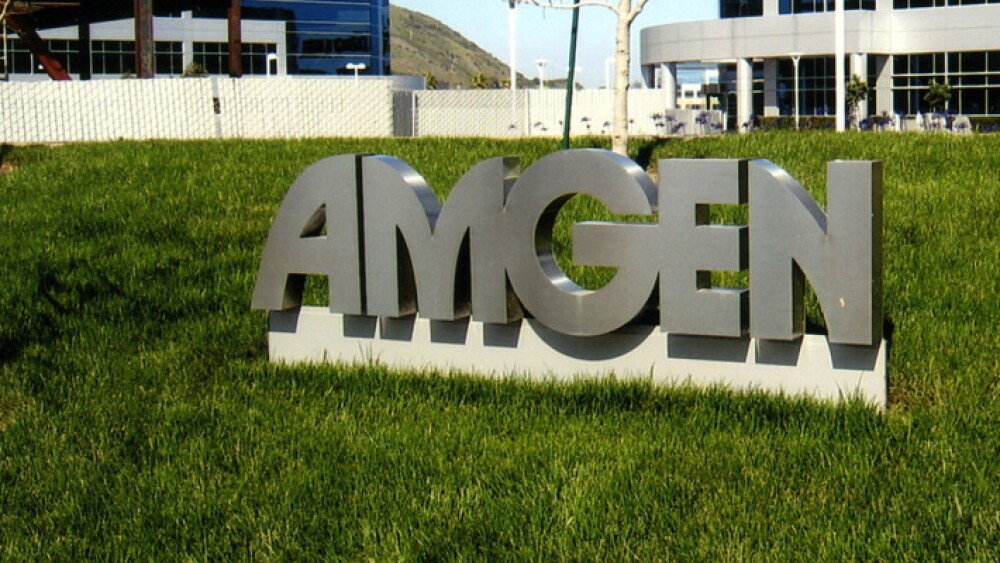March 6, 2017
(Last Updated: March 8, 2017 at 7:40am PT)
By Alex Keown, BioSpace.com Breaking News Staff
REDWOOD CITY, Calif. – Coherus Biosciences , which is developing a biosimilar for Amgen’s Neulasta (pegfilgrastim), said this morning that Amgen filed a trade secret action, alleging trade secret misappropriation.
In a copy of the complaint sent to BioSpace, Amgen said its lawsuit was about a “massive conspiracy by disloyal former Amgen employees” who went on to found Coherus. The lawsuit says that Coherus and its strategic manufacturing partner, KBI Biopharma Inc., are “unfairly competing” against Amgen with a development of the biosimilar to Neulasta by “inducing numerous Amgen employees” to breach confidentiality agreements regarding Amgen’s pipeline. The lawsuit names former Amgen employee Howard S. Weiser, currently executive director at Coherus, as a trade secret violator. Weiser served as executive director of Amgen’s national oncology accounts until January of this year, according to his LinkedIn profile.
In its complaint Amgen said since 2014 Coherus has targeted and hired dozens of former Amgen employees who have had deep technical experience with drugs that Coherus is targeting with biosimilar competition. Amgen said it has learned that proprietary information was stolen from the company, including laboratory notebook pages, analytical methods, method development reports, cost calculators and more.
In a statement this morning Coherus said Amgen filed its legal action on March 3 in California state court. Denny Lanfear, president and chief executive officer of Coherus and a former Amgen employee, said that Coherus believes Amgen’s charges are without merit. He said the company will vigorously defend the charges.
“We categorically reject the theme of Amgen’s complaint that Coherus has engaged, or is engaging, in a scheme to misappropriate trade secrets or commit other wrongdoing. Coherus believes this lawsuit is best understood as an effort by Amgen to use baseless litigation in an effort to delay Coherus as a competitor in the pegfilgrastim market,” Lanfear said. “Coherus does not need Amgen’s proprietary information to compete or be successful. We are proud of Coherus’ novel clinical development strategy and novel clinical study designs that were never performed at Amgen and are not Amgen’s intellectual property.”
Lanfear said Coherus is committed to developing biosimilars and bringing them to the marketplace.
BioSpace reached out to Amgen this morning regarding the charges but had received no response at press time.
In October 2016, the U.S. Food and Drug Administration accepted Coherus’ Biologics License Application for CHS-1701, a biosimilar to Neulasta. Biosimilars, which are made inside a living cell, are always uniquely different in composition, which differentiates them from generic drugs. Biosimilars have been widely available in Europe since 2006, but the FDA was only granted the right to review and approve them when Obamacare was passed in 2010.
Amgen is a company that faces multiple biosimilar threats. Four of Amgen’s drugs have biosimilar challenges, including the cancer drug Neupogen, which is used to treat neutropenia. Another Amgen drug facing biosimilar threats from Sandoz and Pfizer ’s subsidiary Hospira is its anemia drug Epogen. Amgen has been fiercely contesting threats against these drugs in U.S. courts.
In September 2015, Novartis and Sandoz launched the first approved biosimilar Zarxio in the United States after a U.S. court denied Amgen’s appeals to block sales of the drug, which is a “copycat” version of that company’s blockbuster treatment Neupogen.
In addition to its Neulasta biosimilar, Coherus is also developing CHS-0214, a proposed biosimilar of Enbrel, Amgen’s blockbuster rheumatoid arthritis drug. Coherus is developing CHS-0214 with Baxalta , which is now part of Shire. In October, the companies said they planned to discuss submitting data for marketing authorization in Europe sometime in the first half of 2017.





